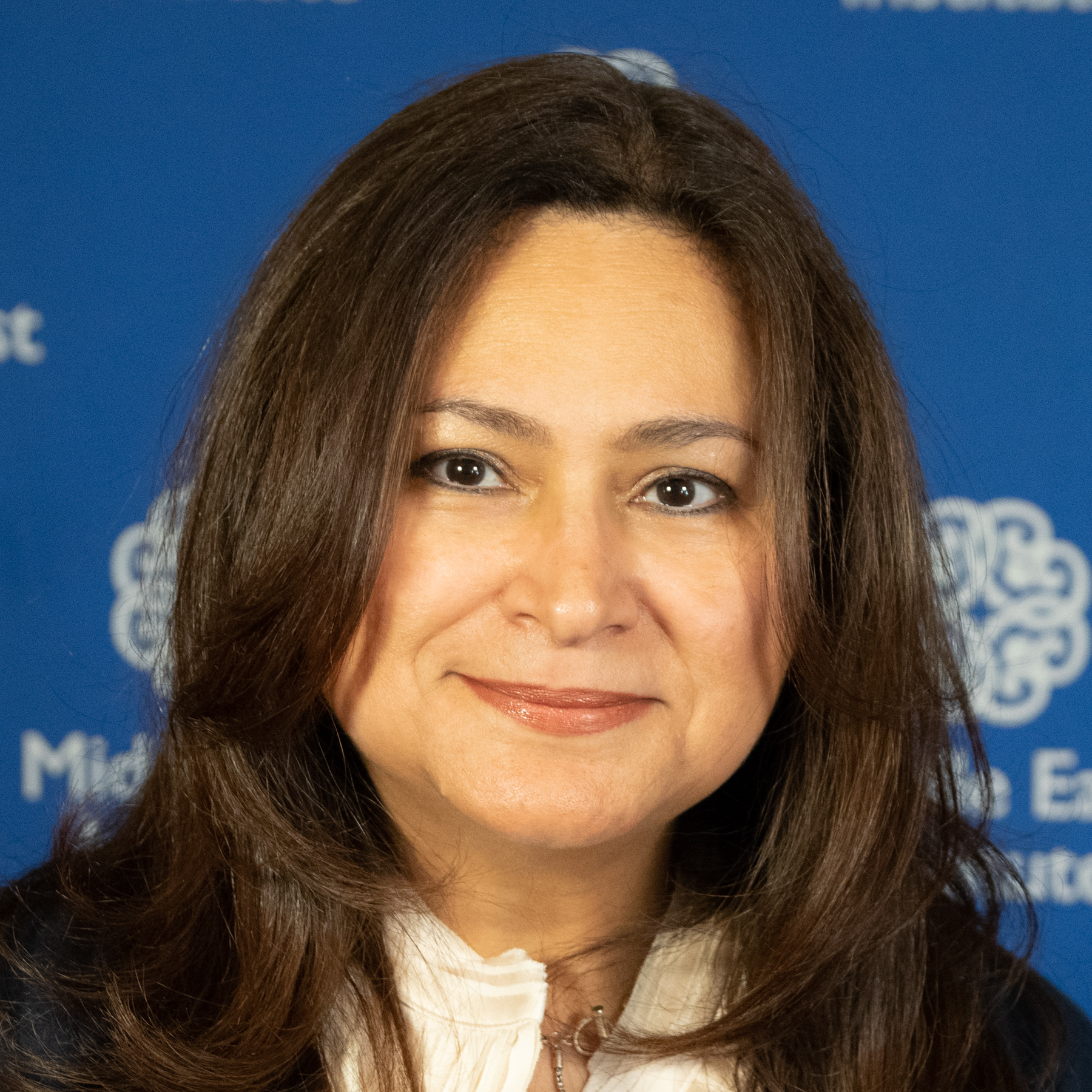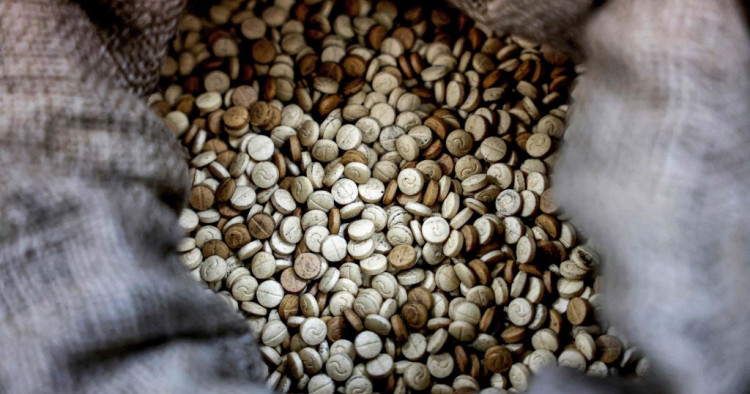Contents:
- Assad’s narco-state enriches itself as Syrians face a spiraling economic and humanitarian crisis
- Once again, Pakistan worries about the threat of widespread domestic terrorism
- Western Sahara recognition complicates burgeoning Morocco-Israel ties
- Egypt attempts to tackle foreign currency crunch
Assad’s narco-state enriches itself as Syrians face a spiraling economic and humanitarian crisis
Charles Lister
Senior Fellow, Director of Syria and Countering Terrorism & Extremism programs

-
The Syrian economy continues to suffer from destroyed infrastructure, electricity shortages, and staggering inflation, with food costs growing by 30% and fuel prices going up by more than 44% in three months.
-
But while ordinary Syrians struggle, the regime enriches itself through drug smuggling, the proceeds from which likely totaled tens of billions of dollars last year.
As Syria enters 2023, the country’s economic crisis continues to spiral out of control. After more than a decade of debilitating conflict, the regime’s blind pursuit of survival has left behind a Syria in ruins. More than 50% of the country’s basic infrastructure lies destroyed, and the nation itself is divided into three distinct zones, each controlled by different, hostile actors and guaranteed by rival foreign powers.
In addition to the clear costs of conflict, Syria’s economy and humanitarian conditions have been hit especially hard in recent years by the effects of Lebanon’s economic collapse, the COVID-19 pandemic, and the war in Ukraine. A year ago, one U.S. dollar was worth 3,600 Syrian pounds. Today it stands at 6,300. Over 90% of Syrians now live under the poverty line, and 70% are dependent on humanitarian aid, according to the United Nations.
Living conditions are worst in regime-held areas, where spiraling inflation, fuel shortages, subsidy cuts, and rocketing food prices have combined to make this winter the hardest yet — even compared to years of peak hostilities. In Damascus, a good day now brings two to three hours of electricity. As Syrians besieged or displaced by regime violence have done for years, people in regime-controlled areas have now taken to burning plastic bags, pistachio peels, rubber, and even feces for warmth at home. A widely feared wheat shortage in mid-2022 was minimized only by vast quantities of stolen Ukrainian grain, provided by Russia. And yet, the cost of basic foods in Syria has risen by 30% in the last three months.
Some economic analysts expect hyperinflation to begin this year, as the regime continues to acquire fuel and basic imports with credit. Syria’s deficit currently stands at 8.8 trillion Syrian pounds (approximately $3.5 billion). Iran’s recent abrupt reduction in fuel supplies has had a particularly acute effect for Syrians, as admitted by Oil Minister Bassam Toameh. With less supply acquired through credit, Damascus has been forced to purchase fuel elsewhere with cash, driving inflation and raising prices. The cost of gasoline has increased by 44% in three months, with crippling knock-on effects across industry and society. A month’s average government salary today equates to roughly 20 liters of car fuel. Syria’s soccer and basketball leagues have been canceled for a year, as clubs could not afford fuel to travel to matches. The government has cut its working week to four days to save energy costs — and working overtime is banned.
As ordinary Syrians suffer, the regime continues to enrich itself on proceeds from drug smuggling. In 2021, authorities across the Middle East and as far afield as Malaysia, Nigeria, and Sudan seized at least $5.7 billion of Captagon produced and smuggled abroad by Syria’s regime. The year 2022 was on track to match or surpass 2021’s numbers. Security officials estimate that seizures of Syrian Captagon account for only 5-10% of the overall trade, which suggests the total value in 2021 was at least $57 billion — or ten times the country’s annual budget. The contrast between the welfare of the regime and the population could not be more stark.
Follow on Twitter: @Charles_Lister
Once again, Pakistan worries about the threat of widespread domestic terrorism
Marvin G. Weinbaum
Director, Afghanistan and Pakistan Studies

-
The Pakistani military appears to have received the government’s go ahead to launch large-scale counter-terrorism operations against the Tehreek-e-Taliban Pakistan and their Baloch allies.
-
If the militants are not crushed, it is only a matter of time before these groups are again able to extend their terrorist activities to Pakistan’s cities.
Alarm bells are sounding in Pakistan as it enters a new year of resurgent militancy and terrorism, both homegrown and externally facilitated, from the extremist jihadist Tehreek-e-Taliban Pakistan (TTP) and its now allied ethnonational separatist Baloch Liberation Army. Until two and a half years ago, the country thought it had finally contained these threats. With both insurgent groups largely holed up in an Afghanistan embroiled in its own conflict, terrorist-initiated domestic violence in Pakistan had sharply declined. The Taliban’s ascent to power in Kabul was, thus, initially viewed as a further boon for Pakistan. But rather than serving its security interests, Taliban leaders have resisted pressure from Pakistan to end the TTP’s Afghan sanctuary. Instead, they pushed the TTP to the negotiating table and to agree to a months-long ceasefire. With the two sides — Islamabad and the TTP — at loggerheads on critical issues, peace talks bogged down and then formally ended late last November. Although Pakistan had more success in getting the Kabul government to pressure Baloch fighters to vacate bases close to the Pakistani border, the return of these hardened militants only served to breathe new life into their rebellion. Overall, the level of violence in Pakistan has doubled since the Taliban assumed power in August 2021 and surged during the last half of 2022 as prospects for a peace deal faded.
In response to growing terrorist attacks, the Islamabad government has been anxious to convey the gravity with which it views the threats to national security. In remarks early last week, the country’s Interior Minister Rana Sanaullah declared that Pakistan has “zero tolerance for terrorism” and sees no difference between “good” and “bad” terrorists. Aiming at Afghanistan, he warned that no country would be allowed to give sanctuary to or facilitate terrorism. As clichéd as this government rhetoric sounded, it matched the tone of recent high-level meetings addressing Pakistan’s growing concerns over domestic terrorism. Over the last three weeks, this topic was reportedly the centerpiece of a discussion between Prime Minister Shehbaz Sharif and the new Army chief, Asim Munir, during a confab of Pakistan’s powerful hybrid civilian-military National Security Committee, and at an Army corps commanders’ meeting. Voices from within the military and other public spheres have called for strengthening and more fully implementing the country’s National Action Plan meant to deal with domestic terrorism, and for greater coordination by provincial and federal security agencies.
It is widely believed that Pakistan’s Armed Forces have received the government’s go ahead to launch large-scale operations to root out returned TTP cadres in the border tribal areas and elsewhere in Khyber Pakhtunkhwa Province. Many worry that if the militants cannot be crushed, it will only be a matter of time before these insurgent groups are again able to extend their terrorist activities to Pakistan’s cities. Meanwhile, the Pakistani Army has suffered an unprecedented loss of public trust, an unpopular coalition government is grappling with massive debt payments and runaway inflation, and the leadership is at the same time distracted by a relentless populist opposition biting at its heels. An aggrieved and destabilizing Pakistan is one that militants like the TTP can exploit.
Naad-e-Ali Sulehria, a research assistant to Marvin G. Weinbaum, assisted with the production of this article.
Follow on Twitter: @mgweinbaum
Western Sahara recognition complicates burgeoning Morocco-Israel ties
Intissar Fakir
Senior Fellow and Director of Program on North Africa and the Sahel

-
Reporting suggests Rabat is pressuring Israel to officially recognize Morocco’s sovereignty over the Western Sahara as a precondition to upgrade its liaison office to a full embassy.
-
Israel’s apparent reticence to give official recognition likely reflects concerns about future leverage, while public opinion in Morocco toward Israel and the normalization deal may be shifting in a negative direction.
On Jan. 4, U.S. news outlet Axios reported that Rabat is pressuring Israel to officially recognize Morocco’s sovereignty over the Western Sahara as a precondition to upgrade its liaison office in Tel Aviv to a full embassy. This is an unusual report of friction between the two new partners. Bilateral ties between Morocco and Israel have grown quickly in the aftermath of the tripartite deal brokered in the last weeks of the Trump administration.
This disagreement between Morocco and Israel is not related to the Palestinian issue, about which both sides appear to have largely agreed to not engage, but rather it is about pushing Israel to clarify its stance toward Morocco’s annexation of the Western Sahara. This emphasizes Morocco’s focus on maximizing its geopolitical gains from the Abraham Accords. Morocco received U.S. recognition of its claim to the Western Sahara upon signing onto the Accords, and Rabat seems intent on maintaining momentum around international recognition of its core national interest.
When the normalization deal between Morocco and Israel was signed in December 2020, the question of Israeli recognition of Morocco’s Western Sahara claim was not initially a point of emphasis for several reasons: the rushed nature of the agreement, Morocco’s primary focus on U.S. recognition, and potential concerns about the optics of Morocco signing an agreement with Israel that excluded any Palestinian interests. To that end, Morocco was not too concerned about Israel’s official position on the Western Sahara. For its part, Israel has shown, as several high-level government officials have stated, that it views the Western Sahara as part of Morocco, Axios reports.
Indeed, much of the military cooperation between Morocco and Israel revolves around what Israel has to offer Morocco’s military to better counter the Polisario, the armed group fighting Morocco for Western Saharan independence. Israel’s apparent reticence to give official recognition likely reflects concerns about future leverage: It presumably wants to maintain the ability to trade key concessions with Morocco in the future, as needed. Israel has important partnerships with African governments that do not support Morocco’s claims, so maintaining ambiguity reduces the potential for friction.
Furthermore, worryingly for Israel, public sentiment in Morocco toward Israel and the agreement may be shifting in a negative direction, potentially slowing down the pace and intensity of the partnership. During the recent World Cup in Qatar, the Moroccan national team displayed pointed solidary with the Palestinian cause, bringing the issue back to the forefront of the public’s mind. Moroccans had displayed some of the least resistance to normalization initially, but public sentiment can change, especially given the new hardline government in Israel. The reputation of Israel’s leaders and the likelihood that it will adopt policies against Palestinians in the West Bank and Gaza could provoke a popular backlash in Morocco and beyond.
Follow on Twitter: @IntissarFakir
Egypt attempts to tackle foreign currency crunch
Mirette F. Mabrouk
Senior Fellow and Founding Director of the Egypt program

-
Analysts expect the Egyptian pound to slide further, hopefully closing the gap between the official and unofficial rates, effectively crowding out the black market.
-
In a bid to encourage people to relax their grip on their foreign currency holdings and to control inflation, the country’s two largest banks offered one-year certificates of deposit yielding a jaw-dropping 25%.
Over the last few days, the Egyptian pound has continued to drop in value against the U.S. dollar (to 27.15 pounds against the dollar as of Sunday). Indeed, since early January 2022, it has slid almost 42.4%. But oddly enough, at this moment in time, that news actually isn’t as bad as it sounds.
In October, Egypt had secured a loan from the International Monetary Fund (IMF), its fourth in six years, to the tune of $3 billion. One of the three major stipulations was that Egypt adopt a “flexible exchange rate” as opposed to the heavily managed one the Egyptian government has (with rare, controlled, exceptions) heretofore employed.
Egypt’s currency is pegged against the dollar. That in itself is not particularly unusual; it’s quite common in the region. Jordan does it, as do the Gulf Arab states; though in the case of the latter countries, it is largely because their wealth comes from oil, which is priced in dollars. There is a significant regional difference in the risks and implications of the practice, however. The gap between Egypt’s foreign exchange revenues and reserves and those of its Gulf neighbors is vast. Cairo simply doesn’t have sufficient buffer reserves. Managing the exchange rate (essentially by restocking the market when the dollar supply dips and vice versa) is a tricky practice. It is just about manageable when things are going well but entirely untenable when unforeseen pressures are brought to bear. In this case, the “black swan” challenges included the economic fallout from a pandemic and the war in Ukraine, both of which resulted in heavy foreign exchange outflows — $20 billion in the first quarter of last year alone. That in turn led to skyrocketing prices on imports, many of which languished in ports because importers lacked the foreign currency to buy them. It didn’t help that the government required importers to have “letters of credit,” which mandated that the goods be paid for in hard currency and that the transactions take place between banks, rather than the importer and exporter. Though essentially a means to control currency outflows, in practice this meant that importers often couldn’t get their hands on the currency in time, leaving them unable to pay or having to resort to the black market. Together, the situation further strained the currency reserves and helped inflation to spike. With imports of essential goods on the line and the IMF’s conditional support dangling by a thread, Egypt went into major damage control mode.
In the first sign that Egypt was serious about devaluation, the governor of the Central Bank, Tarek Amer, stepped down and was promptly replaced by Hassan Abdallah. Unlike Amer, who had apparently stubbornly maintained the peg in the face of persistent advice to the contrary, Abdallah seems to have his eye on the ball. Over the past few weeks, the Egyptian pound has steadily slid against the dollar. Analysts expect it to slide another 5% or so, closing the gap between the official and unofficial rates, effectively crowding out the black market. The requirement for the problematic letters of credit was revoked at the end of December, and importers are now allowed to use collection documents. That should help clear the import backlog, encourage a steady supply of foreign currency, and help get a handle on inflation, which has shot up to its highest level in nearly five years. A further devaluation may be on the immediate horizon. The average Egyptian, who will see rising prices across the board, is likely to be hit very hard in the short run. However, if Egypt continues to free float the pound, analysts feel it could see foreign currency inflows of up to $15 billion by the end of the year, money desperately needed for equity and debt servicing.
In a bid to encourage people to relax their grip on their foreign currency holdings and to control inflation, the government has been working on the domestic currency front. Interest rates have risen (most recently by 300 basis points when it comes to the benchmark interest rate), and the country’s two largest banks, National Bank of Egypt (Al Ahly) and Banque Misr, offered one-year certificates of deposit (CDs) yielding a jaw-dropping 25%. So far, it appears to be paying off — the CDs have brought in almost 100 billion Egyptian pounds in a matter of days, according to the deputy head of the National Bank of Egypt, Yehya Aboul Fotouh.
Follow on Twitter: @mmabrouk
Photo by JOSEPH EID/AFP via Getty Images
The Middle East Institute (MEI) is an independent, non-partisan, non-for-profit, educational organization. It does not engage in advocacy and its scholars’ opinions are their own. MEI welcomes financial donations, but retains sole editorial control over its work and its publications reflect only the authors’ views. For a listing of MEI donors, please click here.













